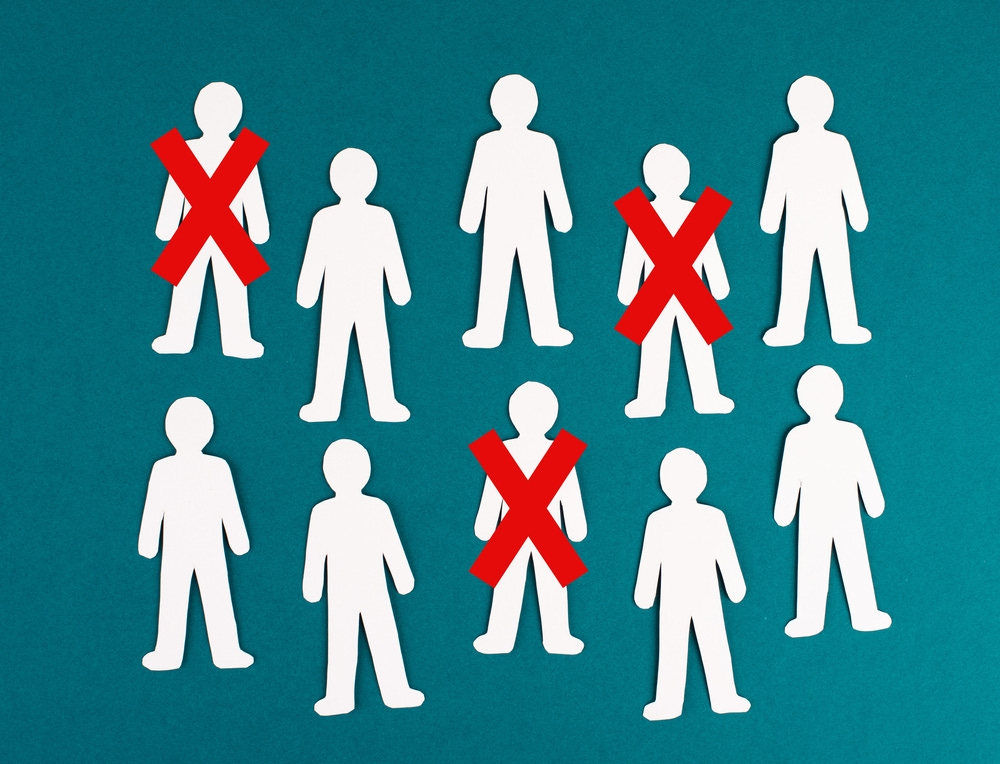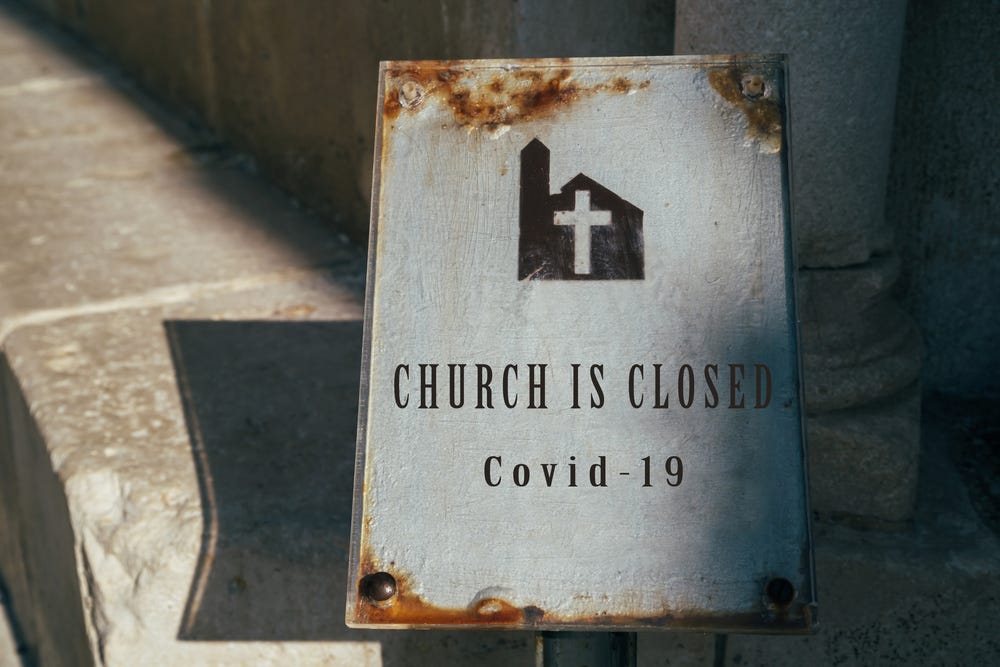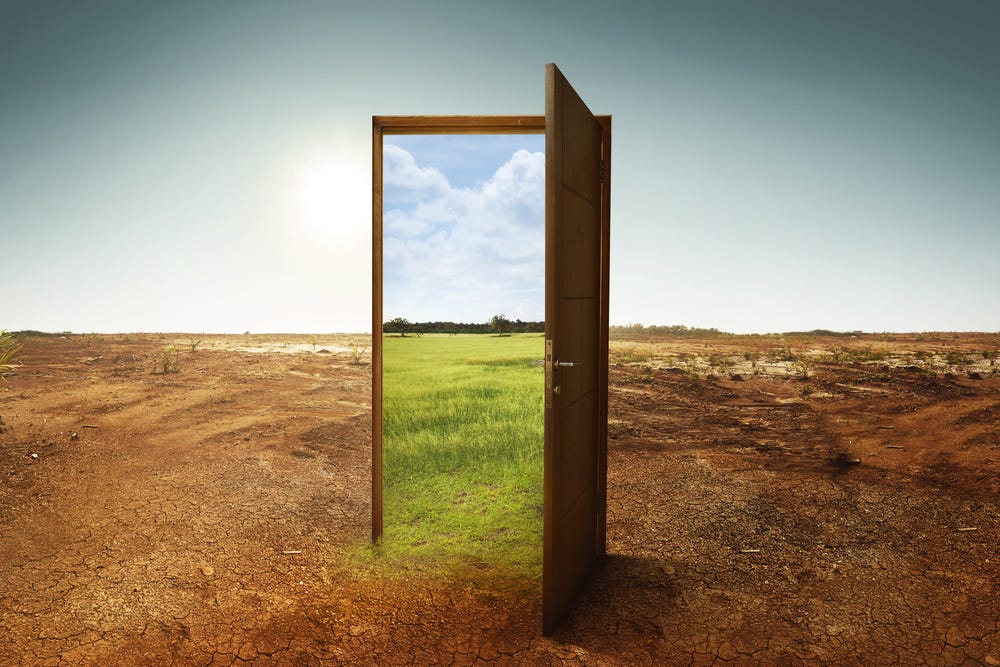E-Pluribus | October 7, 2022
Teaching students to speak up, the impact of Covid restrictions on religious institutions, and climate change and conservatism.
NOTE: We will be taking a few days hiatus from E-Pluribus for some R&R. We'll be back with regular posts on Thursday, October 13.
A round-up of the latest and best writing and musings on the rise of illiberalism in the public discourse:
Janice Traflet: Learning to Speak Fearlessly in the Midst of College Cancel Culture
Students go to college not only to acquire knowledge but also to learn how to assimilate that knowledge into a coherent belief system and that includes being able to express, debate and defend (and sometimes even change!) those beliefs. At RealClear Pennsylvania, professor Janice Traflet says the current atmosphere on campuses is making that more difficult and teachers have a responsibility to stand behind and support students in the struggle.
Colleges are no longer robust arenas for students to engage in lively debate. The space in which they once felt free to shape, refine, reaffirm, or jettison certain beliefs has been retrofitted to prioritize purported emotional safety, not free discussion.
As a result, students are hesitant to speak their minds or explore their tentative ideas, even on relatively innocuous topics, and even among those whom they consider friends. They aren’t paranoid. They have seen peers face retaliation, bullying, and condemnation for disrupting “safe spaces” – even though what one person deems a safe space might be regarded as unsafe by someone else.
[ . . . ]
We talk a lot in academia about the necessity of being a good “ally.” Too often, though, such allyship tends to run in one direction. That increases the chances of our peers feeling left alone in taking a stance that looks unpopular but with which others present might silently agree.
We should take a cue from long-ago shareholder activist Wilma Soss, who believed in the power of free speech and the power of one person. In the 1940s and 1950s, she dared to speak up at corporate annual meetings and challenge CEOs and boards.
Soss’s fearless commitment to fighting for the rights of the individual investor is the focus of my new book with coauthor Robert Wright, Fearless: Wilma Soss and America’s Forgotten Investor Movement. The journey of Wilma Soss was one of courage and optimism. She spoke up to make the system better, and in doing so, she grew as a person and achieved a liberating authenticity that she carried with her the rest of her life.
This fall, I hope my students will do the same – but we can’t expect them to do it alone. They need our support.
Read it all here.
Christos A. Makridis: Quantifying the Harm of Religious Restrictions
One of the more disturbing aspects of the COVID-19 pandemic was the “emergency” power exercised by state and local authorities to minimize the threat of the virus — powers many authorities were loath to give up as the months dragged on. Now at City Journal, Christos Makridis reports on the impact the restrictions on religious gatherings had on the congregants and finds the costs likely outweighed the benefits.
My newly published research in the European Economic Review finds that the introduction of Covid-related restrictions on houses of worship led to a substantial decline in subjective well-being and an increase in social isolation among religious adherents relative to non-religious people.
Using a sample of 50,000 Americans surveyed between 2020 and 2021, I find that the adoption of these restrictions reduced current life satisfaction and made it more probable that religious people would isolate themselves. These effects remained after controlling for demographics, income, political affiliation, industry, and occupation—and they wiped away nearly half of the life-satisfaction advantage that religious people generally enjoy over the non-religious. Limits on exactly how many people can gather were associated with more harm than were percentage caps on occupancy.
Further, my research finds no public-health benefits to these restrictions—they did not limit the spread of Covid infections or deaths, on average. This finding joins a large body of empirical literature identifying adverse economic effects, no public-health benefits, and dreadful benefit–cost ratios for Covid restrictions. Some evidence showed an association between the restrictions and a reduction in Covid in the early months of the pandemic, but as sample sizes grew, these benefits disappeared.
Read the whole thing.
John Gustavsson: A Conservative Approach to Climate Change
While many conservatives still question the validity of climate change, or at least the significance of the impacts attributed to human activity, John Gustavsson argues at The Dispatch that conservatives do not have to give up conservatism to take climate change seriously. Gustavsson says onerous regulation of everyday behavior is not necessary to mitigate climate-induced problems and enumerates ways in which conservatives can contribute to solutions without violating their principles.
[C]limate change needs conservative solutions. Modern environmentalism is all too willing to toss aside people’s traditions, habits, and lifestyles for the “greater good.”
We live during a time in which ordinary people can fly to other parts of the world, eat generous amounts of meat, and in which cars give us a level of freedom that was unimaginable just a few generations ago. Those on the left tend to see these parts of our current civilization as a moral failing and proof of the capitalistic system’s inherent decadence. This gives conservatives an opportunity to ground climate policy in a way that preserves as much of our modern lifestyle as possible.
Fortunately there are options—backed by science and already in use in some places—that allow us to combat climate change without asking anyone to eat bugs, go vegan, or stop flying.
[ . . . ]
If we are serious about climate change being an impending global crisis, there is no reason not to turn geoengineering in general and carbon capture in particular into a “Man on the Moon” project for the 2020s, investing in the research and development of these technologies to fight climate change without interfering with the lives of our citizens.
[ . . . ]
Denying climate change might seem like a political winner, but it does nothing to stop the efforts of leftists and environmentalists to impose costly and draconian measures that serve their anti-capitalist agenda. Working toward practical solutions that allow us to preserve our way of life is the real conservative move.
Read it all.
Around Twitter
Here’s a question posed by Peter Boghossian at a recent lecture of his and some of the answers from individuals in his Twitter replies:
Some excerpts from a mildly optimistic Jesse Singal thread on a Reuters story about the way gender clinics evaluate patients:
And finally, a clip from The Dispatch’s podcast Advisory Opinions on The Onion’s recent Supreme Court amicus brief:









